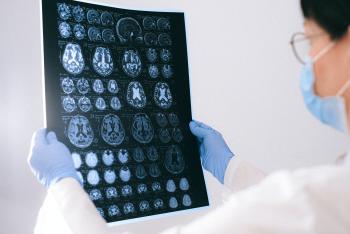Inspira Health proudly recognizes the philanthropy of Gary and Betty Galloway of Vineland, N.J...
Read More

Justin Bieber recently shared that he’s suffering from Ramsay Hunt syndrome (RHS), a condition that’s paralyzed part of his face. Although RHS is rare, it can cause serious health issues, including hearing loss and facial paralysis. Fortunately, there are actions you can take to help prevent RHS.
RHS is a rare neurological disorder that occurs when a shingles outbreak happens near one of your ears and affects the facial nerve which is the seventh nerve and the eight nerve is affected as well. Seventh nerve controls the facial muscles and taste in the front 1/3 of the tongue and hence the facial droop. Eight cranial nerve controls hearing and balance, and so hearing loss, dizziness and imbalance can be seen. Taste is rarely involved. The virus affects the outer insulation sheath of the nerve called myelin. The varicella-zoster virus (VZV), the same virus responsible for chickenpox, also causes shingles.
“Once you’ve had chickenpox, VZV stays dormant in your nerves and can reactivate at any time,” said Shaila Bokkala-Pinninti, D.O., Ph.D., Medical Director of the Neurologic Stroke Program at Inspira Medical Center Mullica Hill. “As a result, anyone diagnosed with chickenpox is at risk for developing shingles or RHS.”
RHS is a relatively uncommon condition, with only about five out of every 100,000 people developing it each year in the United States. It’s more common in adults over 60 and less likely to occur in children.
“Most people diagnosed with RHS experience a painful rash around the outside of their ear or in the ear canal,” said Bokkala-Pinninti. “There’s also typically some degree of facial weakness or paralysis on the same side of their affected ear.” With a facial droop it is often mistaken to be a Stroke. Patients have difficulty holding water in the moth and using a straw to drink.
The facial palsy is also known by the eponym Bell’s palsy first described by Sir Charles Bell.
Other symptoms may include:
If you’re experiencing facial paralysis and have a rash on your face, call your doctor right away. Seeking treatment within two to three days of symptom onset can help prevent long-term complications.
If your doctor suspects RHS, they may take a blood or fluid sample for testing. Doing so will show whether you have VZV in your system, which can confirm the diagnosis.
Treatment for RHS may include antiviral medications and anti-anxiety medications to alleviate vertigo. Your doctor may also prescribe corticosteroids, which can increase the antiviral’s effectiveness and decrease the inflammation of the nerve.
You can alleviate the symptoms of RHS by doing the following:
“Although most people make a full recovery from RHS, about 25 percent develop long-term issues, including facial weakness, severe ear pain and residual hearing impairment or hearing loss ” said Bokkala-Pinninti. “You can reduce your chances of developing RHS by getting vaccinated for chickenpox and shingles.”
The chickenpox and shingles vaccines offer the best protection against RHS and its complications. At Inspira, our providers are here to help with any questions or concerns you have about RHS.
Inspira Health is a high reliability organization (HRO), which means safety is the top priority for patients and staff. To make an appointment, call 1-800-INSPIRA.

Inspira Health proudly recognizes the philanthropy of Gary and Betty Galloway of Vineland, N.J...
Read More
Strokes are the fifth leading cause of death, but fewer than 20 percent of Americans know the...
Read More
Cooper University Health Care and Inspira Health today announced the formation of Cooper and Inspira...
Read More